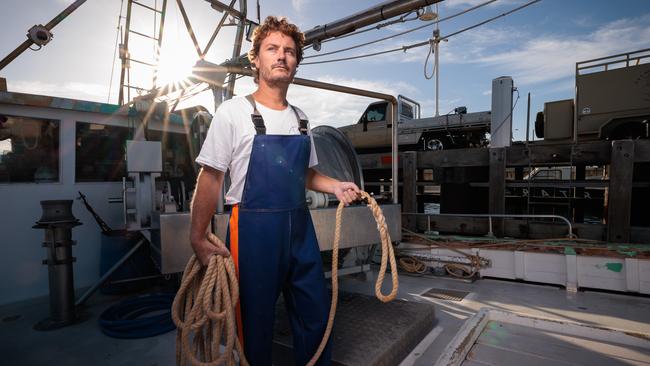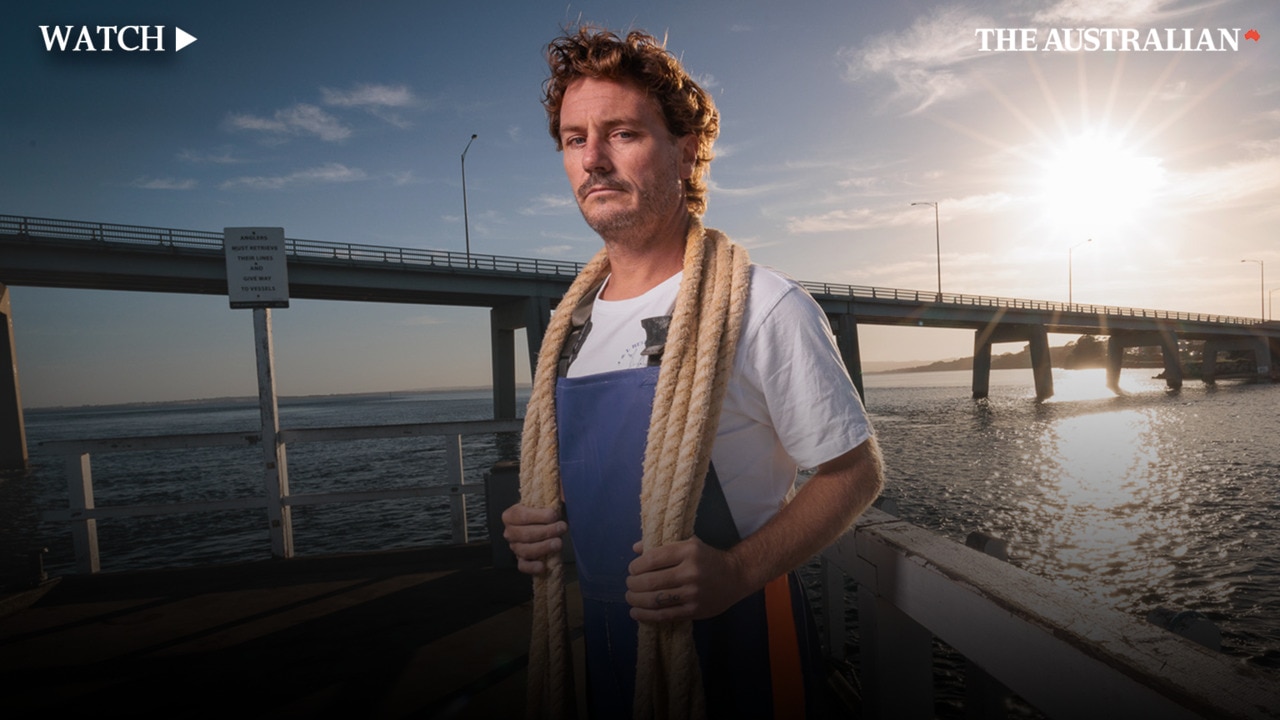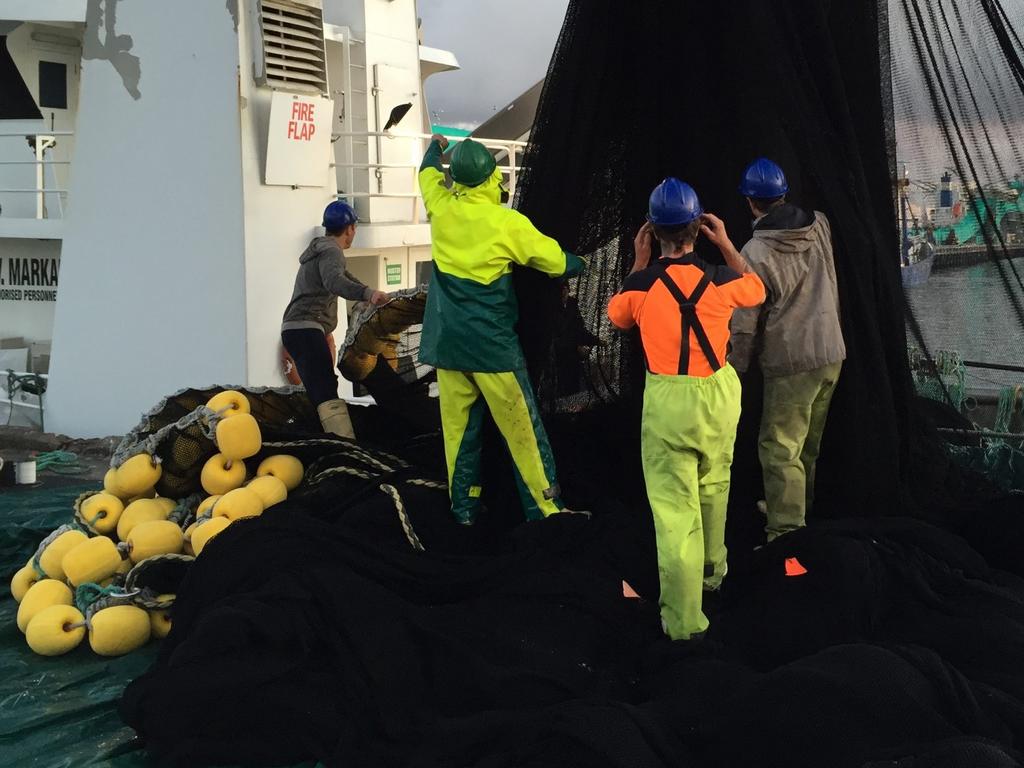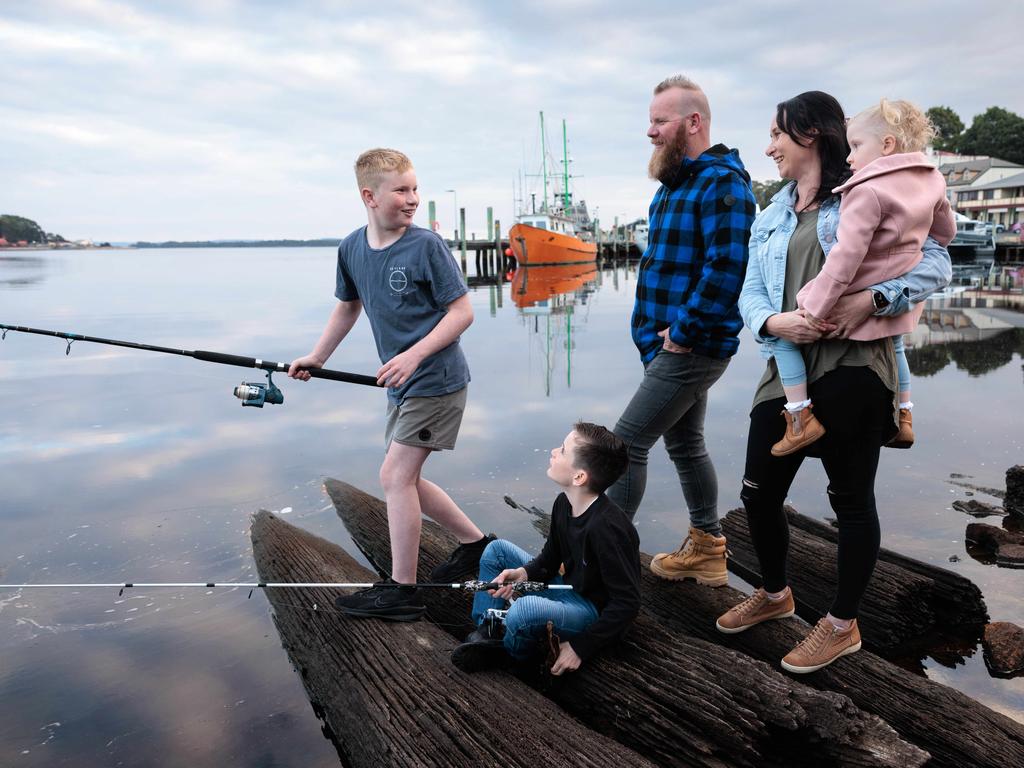Angry fishers despair at ‘Tanya Plibersek’s green tide’
Tanya Plibersek has put Labor on a pre-election collision course with a host of regional fishing industries, changing marine park rules to evict them from their most productive grounds.

Environment Minister Tanya Plibersek has put Labor on a pre-election collision course with a host of regional fishing industries, changing marine park rules to evict them from their most productive grounds.
Ms Plibersek has in recent days revised the zoning within marine parks off the coasts of Victoria, Tasmania and South Australia, creating a series of new “no go” zones.
Fishing groups say swathes of marine parks were now shaded green as “national park zones”, banning fishing, affecting dozens of livelihoods and forcing up fish prices and imports.
Worst affected by “Plibersek’s green tide” include the flake fishery as well as rock lobster and octopus, giant crab, blue eye trevalla and striped trumpeter.
The flake, or gummy shark, fishery estimates 40 tonnes a year will be lost as a result of a new no-catch zone in the Beagle marine park, southeast of Wilsons Promontory.
“It’s one of the highest catch rate areas in eastern Bass Strait,” said Simon Boag, of the Southern Shark Industry Alliance.
“Shark fishing just got more inefficient. The cost to catch sharks just went up.
“Australia already imports about 70 per cent of its seafood and that will go up, as well. The price of flake – fish and chips on a Friday night – just went up. Shark fishers can’t continue to absorb these inefficiencies.”
Fishers would be forced into less productive areas, leading to higher costs and smaller catches.

The combined impact of the parks rezoning and the Gippsland offshore wind zone left the shark fishery a “tiny strip … too small to fish in”.
“It reeks of poor decision making – failing to get in the car and come to regional Victoria and Tasmania and actually talk to on-the water fishermen about the reality of what they were proposing,” Mr Boag said.
“We’re calling on Minister Plibersek to take a deep breath and reverse her decision.”
Fishing groups are also asking the Coalition to move to disallow the changes in the Senate, where they will rest for 15 sitting days.
This could force Labor to either overrule its own minister – as Anthony Albanese has flagged on salmon farming – or risk a backlash in key seats, such as Monash in Victoria and Bass, Braddon, Lyons and Franklin in Tasmania.
Mr Boag said the lockout of fishers from the Beagle marine park was mystifying, given its key justification was protection of the Indigenous values of the sunken former land bridge between Victoria and Tasmania.
“It’s a fascinating and interesting feature worthy of acknowledgment – but not one that requires protection from really benign shark gillnet fishing,” he said.
Seafood Industry Tasmania chief executive Julian Harrington said the changes put a “significant” hole in the rock lobster catch, as well as having an impact on octopuses.
“Being locked out of another area is problematic, particularly while contending with the prospect of being kicked out of other areas for offshore wind,” Mr Harrington said. “Some of these fishermen are getting pushed to the limits in terms of areas they have access to.”
Changes to the Franklin marine park, south of King Island, included a new no-take area that was the region’s “most productive rock lobster catch”.
“It would account for 30 to 50 tonnes of lobster,” Mr Harrington said. “Many fishers fish there.”
They could try to shift to less productive areas, but this would affect other fishers and less sizeable lobster populations, while forcing up costs and affecting viability.
Industry believed the justification for the Franklin marine park changes did not pass muster.
“They say they want to protect golden kelp (but) the reality is that rock lobster fishing using pots has coexisted with that habitat for 100-plus years,” Mr Harrington said. “The commonwealth assessment for export identifies rock lobster fishing as a low impact on the environment. It’s not having an impact on the kelp. But people in Parks Australia and the government have deemed they want to lock this area up.”
Mr Harrington said consultation with fishing groups occurred late in 2024 and their subsequent “robust” submissions pointed out the “flaws” in the proposed changes.
“Next thing we hear new management plans are enacted as of 13 February – there was no comms strategy out to industry to warn them, no information to explain what they can and cannot do,” he said. “So we are in the lurch.”
Groups were “mobilising” politically to have the changes disallowed in the Senate and fishers such as Joshua Rule, based in San Remo, in the marginal Victorian Liberal-held seat of Monash, are desperately hoping they succeed.
Mr Rule, a third-generation fisher, said the changes to the Beagle MP had a “huge impact”. “It’s been sprung on us and it didn’t feel like there was a hell of a lot of consultation,” he said.
“It’s a shock because that’s a high-yield, very productive area for catching gummy shark and it will put more pressure on the remaining areas.
“The cost of catching fish goes up when we have to work areas that are less viable, because we might be travelling further.”
Mr Rule said he saw no justification for closing “a super sustainable food source”. “We supply an important part of Victoria’s food source – Friday night fish and chips is a big tradition and part of the fabric of small coastal communities,” he said.
“We are really worried about our future in coming years after working very hard in this industry for 30 years to get it so clean and sustainable. It’s going to get extremely hard and unviable if we keep going down this route.”
However, the changes have improved catch area for some fisheries, such as longline tuna operators, who welcomed the move, and Ms Plibersek insisted the approach overall was “balanced”. “We want to strengthen the protection of unique and vulnerable environments based on the best available science, and support the continued development of sustainable fishing,” Ms Plibersek’s spokeswoman said.
“That’s exactly what this new plan does – it increases protection for golden kelp forests, pygmy blue whale, and the southern elephant seal, while increasing the area available to commercial fishing including tuna and other pelagic fishing by more than a million hectares.”
Supporters of the changes argue they will affect less than 1 per cent of total catch across all fisheries and that financial assistance will be available to affected fishers.
Coalition fisheries spokesman Jonno Duniam said there should be a “pause” on no-go zone expansions “until we are satisfied that proper process has been followed”.
“Our key focus in this policy area will be to return certainty, stability and proper governance to the administration of these parks and their boundaries, following three years of chaos and unpredictability from Labor,” Senator Duniam said.







To join the conversation, please log in. Don't have an account? Register
Join the conversation, you are commenting as Logout